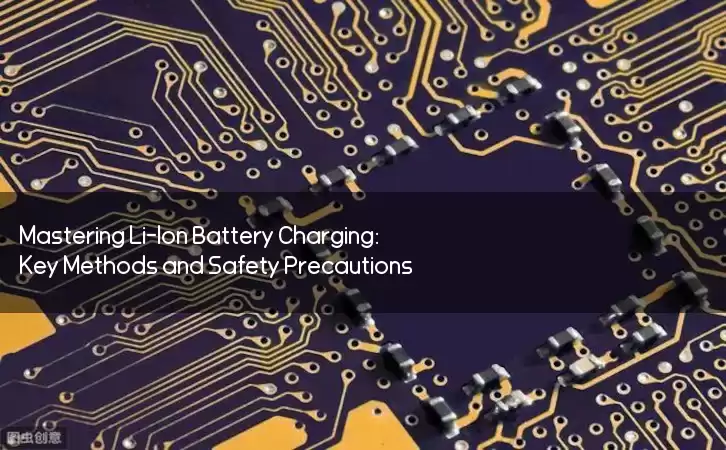Information Center
Mastering Li-Ion Battery Charging: Key Methods and Safety Precautions
Published:2023-05-28 19:43:05 Author:Green WCND Views:91Li-Ion Battery Charging: An Overview Li-ion battery charging is the process of restoring the energy levels of a lithium-ion battery through the application of an electrical power source. Li-ion batteries are among the most advanced and widely used types of rechargeable batteries in the world. The Li-ion battery is a type of electrochemical cell that provides electrical energy by the movement of ions between two electrodes, a cathode and an anode. It is popular in electronic devices like smartphones, laptops, and electric vehicles. The charging process of Li-ion batteries is quite different from that of other rechargeable batteries like lead-acid and nickel-cadmium batteries. In an Li-ion battery, lithium ions move from the positive electrode to the negative electrode during discharge and in the opposite direction during charging. Li-ion battery charging involves three main stages: constant current charging, constant voltage charging, and trickle charging. In the first stage, the battery is charged with a constant current until it reaches a predetermined level. In the second stage, the voltage is held constant while the charging current is gradually reduced until the battery is fully charged. In the final stage, the charger applies a small current to maintain the battery’s charge. There are various methods of charging Li-ion batteries, which depend on the type of charger used. The most common types of chargers are: standard chargers, USB chargers, and fast chargers. Standard chargers are the most basic and usually come bundled with devices like mobile phones and laptops. They are typically rated at around 1 A or less and take several hours to fully charge a battery. USB chargers are also a popular and convenient way of charging Li-ion batteries. They allow users to charge devices using a USB port rather than a dedicated charger. These chargers are typically rated at 2.1 A or less. Fast chargers, as the name suggests, can quickly charge Li-ion batteries by delivering a higher charging current than standard or USB chargers. They are often used in electric vehicles and can charge a battery in as little as 30 minutes. However, they can also cause the battery to heat up quickly and reduce its lifespan if used frequently. Over the years, the demand for lithium-ion batteries has soared, thanks to their high efficiency, low self-discharge rate, and ability to retain charge for a long period. However, Li-ion batteries also have some limitations, including sensitivity to heat, overcharging, and over-discharging. In conclusion, Li-ion battery charging is a crucial aspect of operating modern electronics. Choosing the right type of charger and following manufacturer guidelines can help maximize the battery’s lifespan. At the same time, it is important to use caution when handling Li-ion batteries to avoid damage or injury.

Power Adapter Design and Customization Guide for Portable Electric KettlesI. Common Design Types for Portable Electric Kettle Power AdaptersPortable electric ke···
I. Common Design Types of Power Adapters External Independent Type (Most Common) Design: A standalone adapter (e.g., "black brick") connected to the p···
Handheld Vacuum Cleaner Power Adapter Selection GuideIntroductionHandheld vacuum cleaners have become a mainstream tool for household cleaning due to their port···
Drill Power Adapter Selection Guide.drill-container { font-family: Arial, sans-serif; line-height: 1.6; max-width: 800px; margin: 0 auto; padding: 20px; } .dril···





